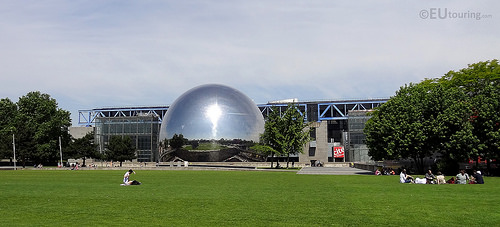
Dr. Gerald Rau shares his perspective on understanding God’s truth, shaped by his experience of reflecting on theology while teaching science.
All these questions had received admirably drafted answers – answers admitting no shade of doubt, since they were not a product of human thought, always liable to error, but were the outcome of official labors. ’ Such questions, ’ — questions which without the convenience of the official machine do not and cannot get solved for centuries – received clear and convincing answers. And these answers were all in favor of Karenin’s contention. — Leo Tolstoy
Tolstoy, Leo, Anna Karenin, Translated by Rosemary Edmonds, Penguin Books, New York, 1978, p. 395 (Part 4, section 6).
Reflection
In our modern, multicultural, rapidly changing world, how can we hold that there is one unchanging eternal truth? Certainly that is not the case in science, where what is written in the textbook may no longer be true by the time it is printed. What is taught as historical truth will differ on two sides of a contested border. Within many of our academic disciplines there are structuralists and functionalists, universalists and variationists, presenting, respectively, prescriptive and descriptive views of truth. Yet often in the church, the words of Tolstoy ring true: questions which have not been solved for centuries receive clear and convincing answers, answers a whole generation of Christians in one country will take as absolute truth. But is it the final word? How can we know? What is the truth?
Frank Lloyd Wright is credited with saying, “The truth is more important than the facts.” Modern western culture has a very linear, literal view of life and history. Facts are truth. Thus, when we read scripture, we are concerned with time sequence, historical referents, and exact words. Many eastern cultures, on the other hand, have a more circular, metaphorical view of life and history. The truth conveyed in stories can be far more important than scientific or historical facts. This used to be the case in the west as well. Think of Aesop’s fables, Grimm’s fairy tales, and countless children’s bedtime stories.
It is important for us to remember that the Bible was written in an eastern culture. I am often amazed how much more sense the Bible makes when read through Chinese eyes than when read through American eyes. Genesis no longer poses the same interpretive problems. The actions of the kings and the words of Jesus do not need to be defended or explained away. No longer is there a need to figure out the sequence of Revelation.
Returning to the main question, how can we as Christians hold that the Bible is unchanging eternal truth? There are a few key doctrines that Christians have agreed on since the days of the early church, as encapsulated in the famous creeds. They accord with science—the evidence points to a time when the universe came into being, which we take to be the work of a creator rather than a new bubble of mindless eternal matter. They accord with history—there is still no better explanation for the rise of a group making such a ludicrous claim as a resurrection than that it actually occurred. Beyond this, when the modern church claims to have the answer—“admitting no shade of doubt”—to questions like origins and eschatology that have been debated by centuries of devout Christians, we need to ask whether we have fallen into the same trap as Karenin.
It is relatively easy to challenge the idea of relativism, for it is not our own. It is much harder to challenge those in the church who have the answer, because we are comfortable with it. Yet, is it possible we have become a little too comfortable with some of our own answers? Perhaps a small dose of historical or global theology would cure our hubris.
Questions
As scholars, we make a living challenging the work of other scholars, but when someone challenges what we have been taught in church, how do we respond? How should we respond?
Prayer
All knowing Father, we will never be like you. Grant us the humility to admit our ignorance, welcome advice, and accept rebuke. Grant us also the courage to stand for the truth, even in the face of opposition. May your Spirit of truth guide us into all truth, as you have promised, and may we be willing to follow.
Further Reading
Noll, Mark. Jesus Christ and the Life of the Mind. Grand Rapids, MI: William B. Eerdmans Publishing Co, 2011.
Tolstoy, Leo, Anna Karenin, Translated by Rosemary Edmonds, Penguin Books, New York, 1978, p. 395 (Part 4, section 6).
In his freshman year, Gerald Rau cofounded the Intervarsity chapter at Wesleyan University. As a Ph.D. student in plant breeding at Cornell University he helped establish the First Ithaca Chinese Christian Church. After teaching science for many years at the American School in Taichung, he is currently semi-retired, starting an English ministry for international students while teaching scientific writing part-time at National Chung Cheng University in Chiayi, Taiwan. He has written Mapping the Origins Debate (IVP) and is working on publications on an eclectic array of topics including human origin, philosophy of science, scientific writing, and teaching English as a lingua franca.


Leave a Reply